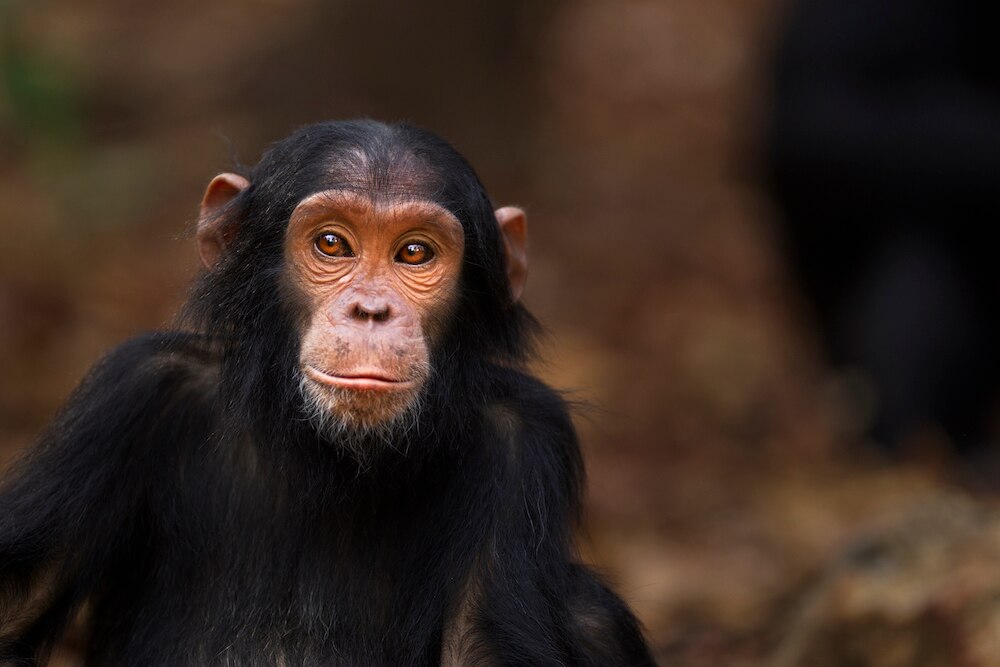Create a free profile to get unlimited access to exclusive videos, sweepstakes, and more!
Chimps can tell if there is malicious intent involved
The ability to gauge intent is not an exclusively human thing.

Any Sherlock fan could tell you that intent can be the difference between malice and ignorance, murder and manslaughter, but the ability to gauge intent is not an exclusively human thing.
Homo sapiens can be full of themselves sometimes. It was previously thought that recognizing intent was something only our (supposedly) superior brains could process, but now chimps have proven they can also do that. It’s not as if they’re going to appear in any courtroom, as judge or jury, but our primate relatives were able to figure out why treats were being held back — and they didn’t like it. That was obvious when they spit at the offending human.
Some humans had to take the hit and the spit to find out. Researcher Jan Englemann, of UC Berkeley, and his team wanted to see whether chimps were aware of tastier treats purposely not being given to them when they were obviously available. Englemann, who led a study recently published in Biology Letters, saw that these creatures obviously have more insight into intent than we might have thought. They possibly inherited it from an ancestor they have in common with us.
“I absolutely think this ability to differentiate between intentional and accidental actions could have come from a common ancestor,” Englemann told SYFY WIRE. “It seems pretty reasonable to assume that the common ancestor already had this ability.”
When the chimps were offered treats in two experiments, there was always something keeping them from getting the one they wanted. The first experiment involved offering a treat to the chimp when a better one either was or wasn’t available. When handlers offered a chimp an inferior treat and the creature could clearly see there was no other option, there were no adverse consequences, but they had to brace themselves when they offered an inferior treat when a superior treat was right in front of them. The handlers inevitably got spit at.
For the second experiment, two handlers would see if they could get past the chimps. The first handler would hold the treat that the animals craved most where they could see it, but the other handler couldn’t, and it didn’t matter whether the second handlers showed that they did or didn’t know the treat was being hidden. Sometimes the “accomplice” would make it obvious to the chimps that they had no idea what was going on. Other times, the accomplice would reveal that they were in on the plot. It didn’t matter to the chimps. They’d spit either way.
“This shows that in the context of evaluating someone's actions, chimpanzees and humans pay attention to intent,” said Englemann.
Chimps are social creatures — much like we are. It shouldn’t really be a surprise that they are able to discern between someone making a conscious choice to hold back a treat and someone who has no other choice. In the cases that one handler was refusing to offer the desired treat, it didn’t even matter if the second chandler did or didn’t know it was within reach. It echoes having responsibility for a crime you witnessed and did nothing about, especially if you were with the perpetrator. For humans or chimps, survival can depend on trust.
Humans who get screwed over can take things to court, but it isn’t so easy for animals which may be put into dangerous situations by others in the group. Staying away from those individuals could mean the difference between life and death. A chimp that hoards too much of the available food in an area might be putting others at risk of starvation, especially if it happens during a drought when food is scarce. The rest of the group isn’t going to want the hoarder around. The perp is going to get spat at. Englemann thinks that just like we need to be assured we won’t be sabotaged, so do chimps.
“Both chimps and humans crucially depend on having good collaborative partners,” he said. On our own, we are lost. And taking intent into consideration helps to distinguish good from bad collaborative partners when we engage in partner choice.”
You don’t need to be Sherlock Holmes to know that that you don’t mess with chimps.


























